Summaries
Bruno Vianey
The first narrative of a French in Russia : the journey of Jean Sauvage in Muscovy in 1586
The first text ever heard of that was written in French about a Frenchman who ventured a sea-voyage to Russia was the one written in 1586 by Jean Sauvage. The latter came from Dieppe, Normandy, and sailed round Cape North towards Arkhangelsk. This voyage had not been undertaken and random ; it had a commercial purpose. It also marked the beginning of diplomatic, commercial and cultural relations between France and Russia.
Catherine Géry
Caucasus – an unstable place in Russian romantic literature
In the 20-30’s of the XIXth century Caucasus abundantly nourished the Russian literature and artistic imagination. As “New Parnassus” and “warm Siberia” - that is to say as a source of poetic creation and a space of relegation for an entire generation of writers (Pushkin, Lermontov, Bestuzhev, Griboedov…), as a mental construction and a colonial space, as a paradigm of romantic modernity and a place of ancient legends, Caucasus provoked a new reflection on civilization’s values and Russia’s historical future faced with the occidental and oriental cultures. The Russian literary discourse on Caucasus is clearly ambivalent ; the formation of this discourse allowed to analyze the different functions of “the other space” from an aesthetic and ideological point of view. How does the Russian literature consider the colonized and “primitive” people ? What are the dominant images ? The representations of “Russian East” are part of complex identity strategies whose stakes are high and exceed a simple recognition of cultural differences.
Patrice Lajoye
The influence of Russian folklore on Caucasian folklore : the example of the Ossetian Nart legends
French and Anglo-Saxon specialists of the Caucasian mythology often tend to consider it as a conservatory, an archaism, little or not affected by cultural contacts with the neighboring regions. However, several examples show that the Ossetians and their neighbors regularly borrow to the Russians some mythological motifs specific to the byliny.
Nadia Ivanova
The Genealogy of “Russian Soul” in Eugène-Melchior de Vogüé’s Le Roman Russe
The present paper explores the variety of factors which give rise to the emergence of the notion of « Russian soul » in the essay by Eugène-Melchior de Vogüé, Le Roman Russe (The Russian Novel). The author presents an original version of the literary analysis of Le Roman Russe, which highlights the range of popular 19th century philosophical ideas influencing Eugène-Melchior de Vogüé’s conceptualization of “Russian soul.” The author categorizes these influences into “the French side” and “the Russian side.”
The “French side” includes : 1) French 19th century stereotypes about what it means to be “Russian” rooted in the historical past ; 2) the need to envisage Russia as a country capable of helping France. The “Russian side” is comprised of the ideas of the early 19th century Russian thinkers who have developed the conception of “Russian messianism,” including the notions of “Russian national character” and “Russianness.”
In conclusion, the author proposes that Eugène-Melchior de Vogüé’s conceptualization of “Russian soul” in his Le Roman Russe crystallized under the influence of the “French-side” as well as “Russian-side” factors is marked with “exoticism” in Tzvetan Todorov’s terminology. In accordance with the logic of opacity of exoticism, Russia is depicted as an ultimately unknowable Other epitomized in the conception of the “Russian soul.”
Michel Niqueux
The mysteries of the Mysteries of Saint-Petersburg
Introduction to the Mysteries of Saint-Petersburg of Ivan Doff, serialized novel published in 1877-1878 in Le Petit Parisien and ignored by bibliographies. Based on Vs. Krestovski’s novel The Slums of Petersburg, which is not mentioned, the author (whose real name is still to be discovered), who knows well the ropes of serialized novels, unfolds a weird plot in a fantasized Russia, with an epilogue inspired by Vera Zassoulich’s attack and which makes this work the first French novel about « nihilists ».
Natalia Soujaeff
Development of oral speech by means of literary texts
Knowledge of foreign language includes a number of components : abilities to understand, read, write and speak. Practice of work with the students studying Russian as foreign language shows that work on oral speech demands a special approach. In the present article a technique of oral speech development by means of the literary text is offered. The author analyzes its specifics, criteria which should be considered in view of text selection and sequence of work with the text. The stages of work on modern prose in the course of one lesson are considered as an example. The special attention is paid to the exercises directed on development of oral speech skills.
Irina Thomières-Kokochkina
Predicative nouns signifying an olfactory sensation in Russian
This paper deals with a domain as yet uncharted of Russian grammar : predicative nouns signifying an olfactory sensation. Simple nouns appear when the origin of the smell is context explicit, in the presence of an adjective of belonging, and/or when the speaker cannot or does not wish to provide any information about the origin of the smell. Compound nouns are of the type “smell name + specifier.” The latter is related to the origin of the smell (object, substance, place name, abstract noun). The functioning of simple and compound smell nouns is governed by the principle of Occam’s razor and the theory of prototypes.
Georges Matcheret
Exhibition in the State Hermitage Museum of the Collection of russian illustraded envelopes.
In 2012 the State Hermitage Museum’s collection of contemporary art was expanded with a collection of 848 russian illustraded envelopes by 200 artists from the 20th-21 st centuries belonging to the famply of Georges Matcheret and Nadia Wolkonsky.
The envelopes at this exhibition were principally decorated by famous masters of the Soviet underground as Ilya Kabakov, Erik Boulatov, Vladimir Nemoukhine, Oscar Rabine and more, and also, highly visible figures on the post Soviet art scene.
The form of envelopes suitable to a high concentration is a unique artistic expression of Russia from the Soviet time today.
Also, in this text Georges Matcheret and Nadia Wolkonsky tell about theirs fantastics meetings with painters.
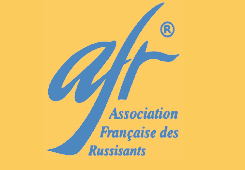




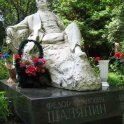
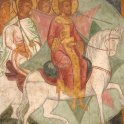



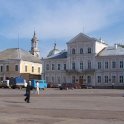






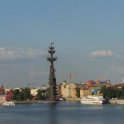




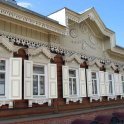

 Sommaire
Sommaire